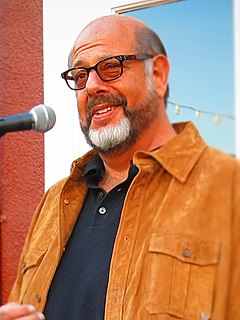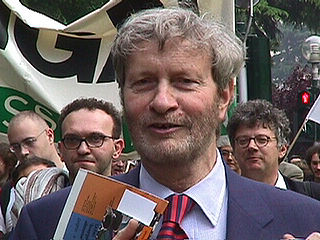A Quote by Elie Wiesel
I come from a tradition - from the Jewish tradition, which believes in words, in language, in communication.
Quote Topics
Related Quotes
One reason which I find particularly fascinating about Israel is this. There is no such thing as a Jewish civilization. There is a Jewish culture, a Jewish religion, but there is no such thing as a Jewish civilization. The Jews were a component basically of two civilizations. In the Western world, we talk about the Judeo-Christian tradition and you talk about the Judeo-Islamic tradition because there were large and important Jewish communities living in the lands of Islam.
God is not good, or wise, or intelligent anyway that we know. So, people like Maimonides in the Jewish tradition, Eboncina in the Muslim tradition, Thomas Aquinas in the Christian tradition, insisted that we couldn't even say that God existed because our concept of existence is far too limited and they would have been horrified by the ease with which we talk about God today.
Those who feel guilty contemplating "betraying" the tradition they love by acknowledging their disapproval of elements within it should reflect on the fact that the very tradition to which they are so loyal—the "eternal" tradition introduced to them in their youth—is in fact the evolved product of many adjustments firmly but delicately made by earlier lovers of the same tradition.
When tradition is thought to state the way things really are, it becomes the director and judge of our lives; we are, in effect, imprisoned by it. On the other hand, tradition can be understood as a pointer to that which is beyond tradition: the sacred. Then it functions not as a prison but as a lens.
Tradition is the transmitting of linguistic messages that constitute the horizon within which Dasein is thrown as a historically determined project: and tradition derives its importance from the fact that Being, as a horizon of disclosure in which things appear, can arise only as a trace of past words or as an announcement that has been handed down to us.
The urge to break with a tradition is only appropriate when you're dealing with an outdated, troublesome tradition: I never really thought about that because I take the old-fashioned approach of equating tradition with value (which may be a failing). But whatever the case, positive tradition can also provoke opposition if it's too powerful, too overwhelming, too demanding. That would basically be about the human side of wanting to hold your own.





































